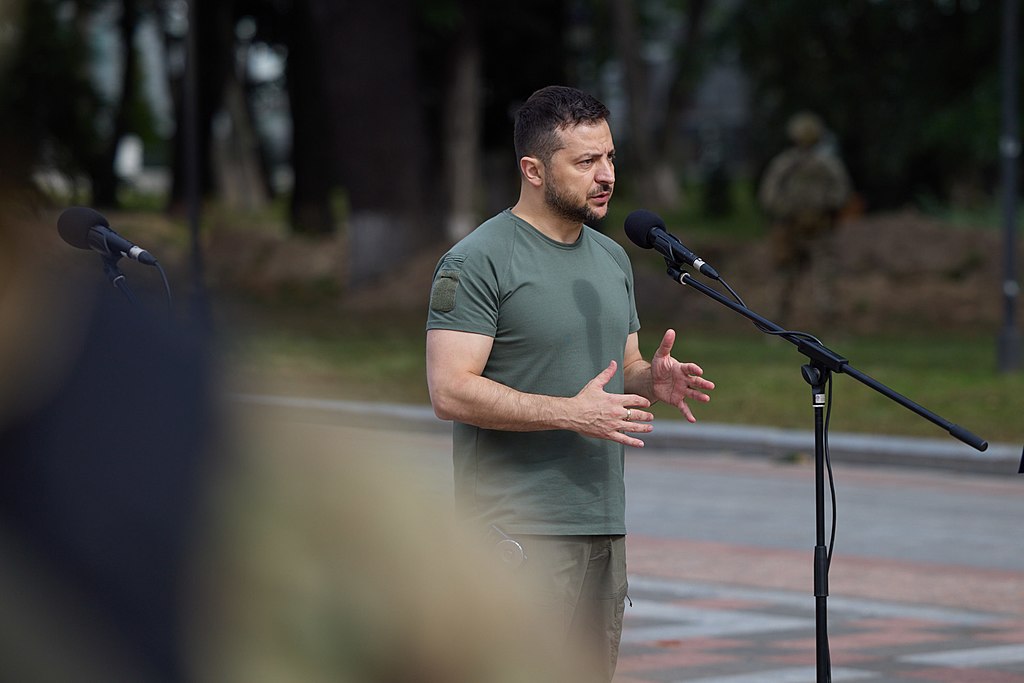Russia’s humiliating defeat in Ukraine seems to be inevitable. While the Ukrainian military continues rapidly advancing and conducting its very successful counteroffensive, the Kremlin cannot – or does not want to – preserve control over the territories that the Russian forces captured during the initial stage of the so-called special military operation.
Only a miracle, or a political deal between the Kremlin and its Western partners, can prevent the total collapse of the Russian Armed Forces in Ukraine. Russia lacks almost everything, from the very basic equipment such as bulletproof vests and night-vision devices, to communications infrastructure and combat drones. It has been clear from the very first day of war that Russian forces suffer manpower shortages. Still, to this day the Kremlin refuses to declare any form of mobilization. As a result, Ukrainian forces have outnumbered Russian and pro-Russian troops by eight times during a lightning counteroffensive in the Kharkiv region.
Thus, the Russian retreat from significant portions of Eastern Ukraine was a big surprise only to those who were not familiar with the situation on the ground.
The Ukrainian military is now attempting to recapture parts of the Donbass that are still under control of the self-proclaimed Moscow-backed Donetsk People’s Republic and Lugansk People’s Republic. It is questionable whether forcefully mobilized locals in the Donbass are still motivated to fight. They see quite well what happened in the Kharkiv region, where the Russians have abandoned the locals who agreed to collaborate with the Russian forces. Previously, Russian officials traveled to the region, telling the locals that “Russia will stay there forever”. Many of those who naively believed the Kremlin’s empty promises tried to escape to Russia following the Ukrainian counteroffensive.
Staying in Ukraine was not an option for them, since they could expect severe punishment for their collaboration with the occupiers. In Russia, they have nowhere to go and nothing to do. In other words, they were betrayed by the Kremlin. Used and abandoned. Nothing unusual, given that betrayal is an integral part of Russian foreign policy. It is, therefore, not surprising that the Ukrainians do not want to be part of the “Russian world”. As Ukrainian President Volodymyr Zelensky recently stressed, cold, hunger, darkness and thirst are not as scary and deadly for Ukraine as Russian “friendship and brotherhood”.
They were betrayed by the Kremlin. Used and abandoned.
Some Ukrainians have already had to face darkness, given that large parts of the country suffered blackouts after Russia bombed a thermal power station in Kharkiv. That, however, does not necessarily mean that the Russian military will continue striking critical Ukrainian infrastructure. All Zelensky needs to do to make Russia stop conducting such attacks is to threaten to end negotiations with Moscow.
He has already used this strategy multiple times and it has worked quite well. On April 17, during the battle for Mariupol, he said that negotiations with Moscow would end if Ukrainian Azov fighters were killed. The Kremlin-backed down. Hundreds of Azov Regiment members were “evacuated” to prisons in the self-proclaimed Donetsk People’s Republic, but they were not killed. Moreover, some of them were later exchanged for Russian prisoners of war. On April 23, Zelensky pointed out that Ukraine would suspend talks with Russia if Moscow held a referendum on creating the Kherson People’s Republic. The Kremlin backed down again and gave up its ambitions to develop another Russia-backed entity on Ukrainian territory. On August 22, Zelensky emphasized that there would be no negotiations with Moscow if Russia tried capturing Ukrainian soldiers in Mariupol. No trial has taken place to this day.
The Russian leadership seems to be looking for a way to de facto capitulate to Ukraine, although in a way that would allow the Kremlin to save face.
In order to end embarrassment and humiliation in Ukraine, the Kremlin desperately needs negotiations with Kyiv. The Russian leadership seems to be looking for a way to de facto capitulate to Ukraine, although in a way that would allow the Kremlin to save face. On September 11, Russian Foreign Minister Sergey Lavrov said that Moscow “does not deny the possibility of negotiations, but delay by the Kyiv regime would further complicate the process”.
Indeed, it will be more complicated for Russia to reach an agreement with Ukraine because the Russian military will lose more territory in the meantime. Once Ukrainian forces recapture the Donbass and Crimea, there will be no need for negotiations with the Kremlin.
But will a defeat in Ukraine have an impact on Vladimir Putin and his elite? In the long-term, yes. In the short to mid-term, Russian propaganda will continue claiming that “everything is going according to plan”. Even a possible fall of the Donbass will not destabilize the Russian regime, since pro-Kremlin propaganda will portray it as another “regrouping” and “tactical withdrawal”, or will simply blame the self-proclaimed republics for a defeat.
But once a “hot phase” of the war comes to Crimea, Moscow will have to do something. It is entirely possible that Russia will then declare some kind of mobilization. But it will be too late. Even with more troops on the ground, Russia will unlikely be able to defeat Ukraine if it is armed and strongly backed by the entire Western civilization.
Turbulent times are ahead for the Russian Federation.
Image: http://www.president.gov.ua

